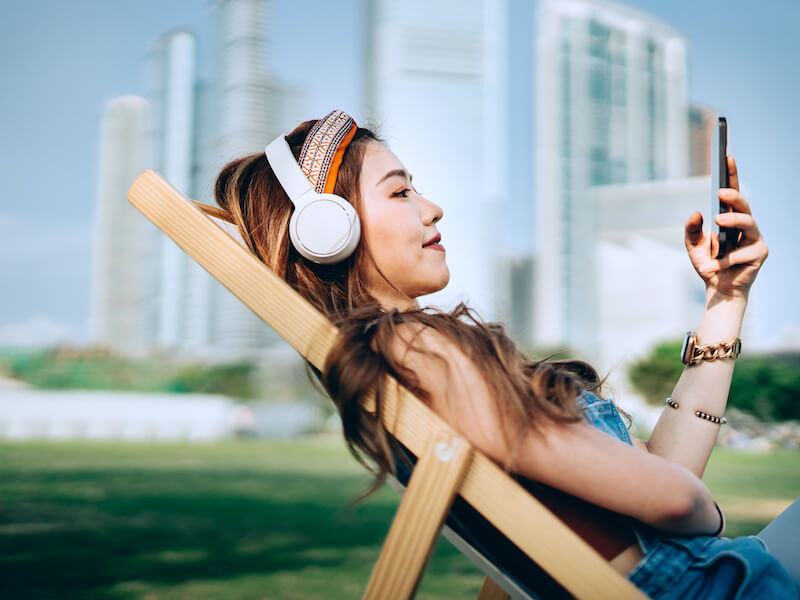
Music is an essential part of Aiden’s life. He listens to Spotify while at work, switches to Pandora while jogging, and he has a playlist for everything: gaming, gym time, cooking, and everything else. Everything in his life has a soundtrack and it’s playing on his headphones. But the exact thing that Aiden loves, the loud, immersive music, might be causing irreversible damage to his hearing.
For your ears, there are safe ways to listen to music and unsafe ways to listen to music. However, the majority of us opt for the more hazardous listening choice.
How can listening to music lead to hearing loss?
As time passes, loud noises can lead to degeneration of your hearing abilities. Normally, we think of aging as the primary cause of hearing loss, but more and more research reveals that it’s actually the accumulation of noise-induced damage that is the issue here and not anything intrinsic to the process of aging.
It also turns out that younger ears are especially susceptible to noise-induced damage (they’re still developing, after all). And yet, the long-term harm from high volume is more likely to be ignored by younger adults. So there’s an epidemic of younger people with hearing loss thanks, in part, to high volume headphone use.
Can you enjoy music safely?
It’s obviously dangerous to enjoy music on max volume. But there is a safer way to listen to your tunes, and it normally involves turning down the volume. The general recommendations for safe volumes are:
- For adults: Keep the volume at no more than 80dB and for no more than 40 hours per week..
- For teens and young children: 40 hours is still fine but lower the volume to 75dB.
Forty hours every week translates into about five hours and forty minutes per day. That may seem like a lot, but it can go by fairly quickly. Even still, most individuals have a fairly solid idea of keeping track of time, it’s something we’re trained to do effectively from a very young age.
The harder part is keeping track of your volume. On most smart devices, smartphones, and televisions, volume is not calculated in decibels. It’s measured on some arbitrary scale. Perhaps it’s 1-100. Or it might be 1-10. You may not have any idea what the max volume on your device is, or how close to the max you are.
How can you listen to tunes while monitoring your volume?
There are some non-intrusive, easy ways to figure out just how loud the volume on your music actually is, because it’s not all that easy for us to conceptualize what 80dB sounds like. Differentiating 75 from, let’s say, 80 decibels is even more perplexing.
So utilizing one of the many noise free monitoring apps is highly suggested. These apps, widely available for both iPhone and Android devices, will provide you with8 real-time readouts on the noises surrounding you. That way you can track the dB level of your music in real-time and make adjustments. Your smartphone will, with the correct settings, inform you when the volume goes too high.
The volume of a garbage disposal
Generally speaking, 80 dB is about as loud as your garbage disposal or your dishwasher. So, it’s loud, but it’s not that loud. It’s an important observation because 80dB is about as much noise as your ears can cope with without damage.
So pay close attention and try to avoid noise above this volume. And limit your exposure if you do listen to music over 80dB. Perhaps listen to your favorite song at full volume instead of the entire album.
Over time, loud listening will cause hearing problems. Hearing loss and tinnitus can be the outcome. The more you can be aware of when your ears are going into the danger zone, the more informed your decision-making will be. And safer listening will ideally be part of those decisions.
Give us a call if you still have questions about keeping your ears safe.
